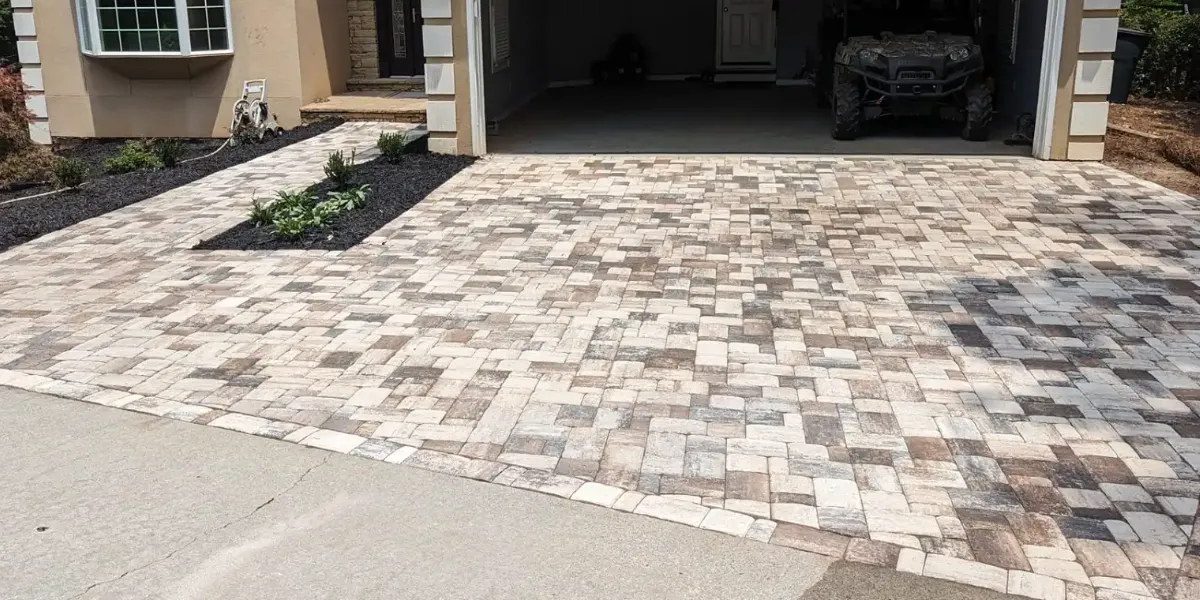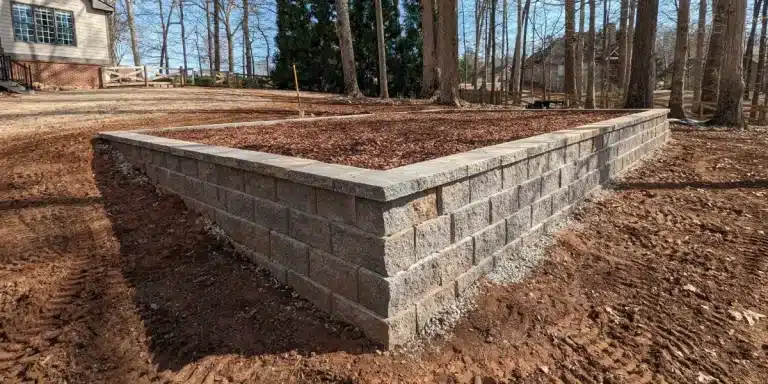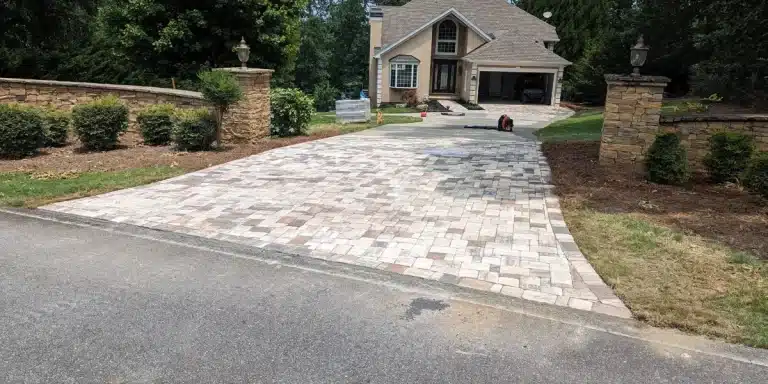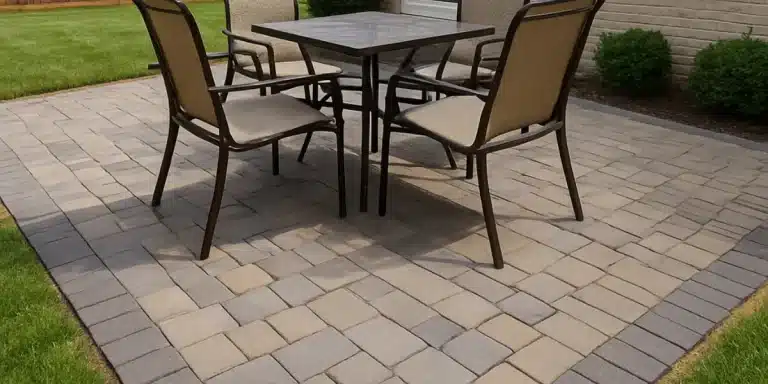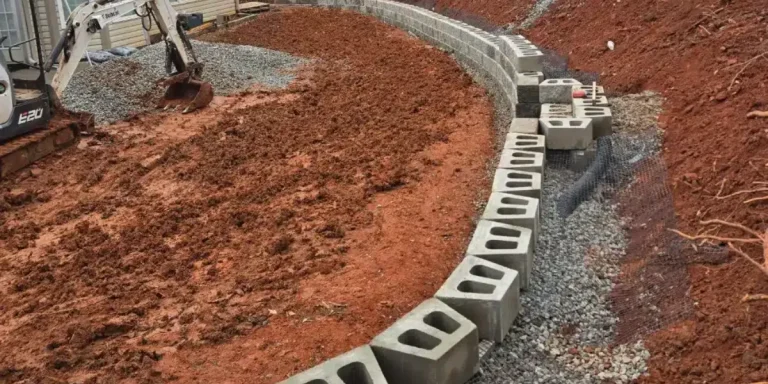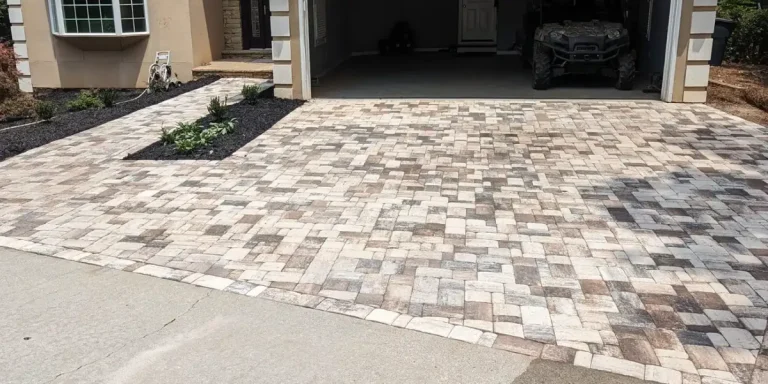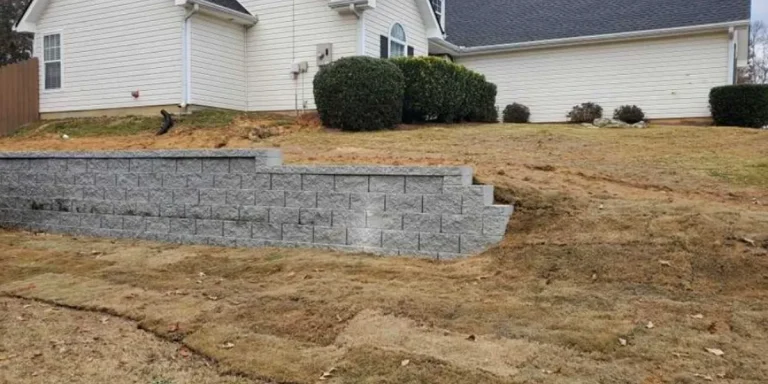Top Paver Choices That Stay Cool in the Georgia Heat
Choosing the right material for your outdoor living space isn’t just about appearance—it's also about comfort. During Georgia’s long, hot summers, certain pavers can become uncomfortably hot to walk on, especially around patios, walkways, and pool decks. If you’ve ever scorched your feet on a sun-baked patio, you know how important it is to select heat-resistant materials.
At Razor Sharp Lawn and Landscape, we help homeowners throughout Hoschton and Northeast Georgia build paver patios, driveways, and walkways that look great and stay cool. This guide covers the best paver options for hot climates and explains why your material choice matters more than you might think.
Why paver temperature matters in Georgia
In Northeast Georgia communities like Hoschton, Gainesville, and Flowery Branch, the summer heat doesn’t just impact your energy bill—it affects how usable and enjoyable your outdoor spaces really are. When surface temperatures exceed 130°F, which they easily can on hot days, the material underfoot becomes a major factor in whether you can comfortably walk, lounge, or entertain outside.
Many homeowners don’t realize that the color, material, and density of their pavers directly influence how much heat they absorb and retain. Darker-colored pavers, such as deep grays or charcoals, and dense materials like asphalt or slate tend to soak up and hold onto heat. This creates surfaces that can be painful or unsafe for bare feet, especially for young children, pets, or anyone stepping out of a pool or patio door without shoes.
Here’s why the right paver choice makes a big difference:
-
- Comfort underfoot: Cooler materials allow you to walk barefoot without discomfort or injury, especially around pools and garden paths.
- Extended usability: When your patio or pool deck stays cooler, you can enjoy it longer—even during peak afternoon sun.
- Safety for families and pets: Hot pavers can burn sensitive skin. Choosing low-heat-retaining materials helps prevent injury.
- Reduced heat islands: Cooler paving materials contribute to a more comfortable overall backyard climate by reflecting, not absorbing, solar radiation.
If you're investing in a new paver patio, pool deck, driveway, or outdoor walkway, making the right material decision upfront ensures your hardscape is not only beautiful but functional year-round. At Razor Sharp Lawn and Landscape, we help our clients choose heat-smart materials that match both the aesthetics and environmental demands of Georgia’s climate.
Best paver materials for staying cool
The Georgia sun is no joke, especially during the summer months when surface temperatures can become unbearable. That’s why choosing the right paver material isn’t just a style decision—it’s a comfort decision. Whether you're relaxing on your back patio, walking barefoot to the pool, or entertaining guests outdoors, the materials below offer both form and function when it comes to staying cool.
1. Travertine pavers
Travertine is a standout material for hot climates like ours in Northeast Georgia. As a natural stone, it has excellent thermal properties that allow it to stay noticeably cooler than concrete or brick, even after hours in direct sunlight. This makes it one of the most popular choices for pool decks and patios where barefoot traffic is frequent.
What makes travertine ideal for hot weather:
-
-
- Naturally porous: Its structure allows air to circulate and heat to escape, helping it maintain a cooler surface temperature.
- Slip-resistant texture: Offers safety in wet areas like pool surrounds or garden walkways.
- Timeless aesthetic: Its soft, earth-toned appearance complements upscale landscapes and blends well with Southern architecture.
- Resilient under pressure: Performs well in freeze-thaw cycles and resists cracking under heavy use.
-
If you're looking for a refined finish and excellent comfort in the heat, many of our clients in Buford and Winder consider travertine well worth the investment.
2. Light-colored concrete pavers
Concrete pavers remain one of the most flexible and cost-effective options on the market—but the key to keeping them cool lies in color selection. Darker hues absorb and retain heat, while lighter tones reflect it. Choosing pavers in light gray, buff, cream, or sandy shades can significantly reduce surface temperatures during peak afternoon sun.
Why light-colored concrete is a practical cooling solution:
-
-
- Highly reflective: Helps reduce heat buildup throughout the day, keeping walking surfaces cooler.
- Style flexibility: Available in a variety of shapes and patterns—from classic brick-style to large modern slabs—suiting everything from traditional front walkways to contemporary backyards.
- Cost-efficient: Provides excellent performance without the premium price tag of natural stone.
- Easy to coordinate: Pairs seamlessly with other landscaping features like garden beds, retaining walls, and edging.
-
We often recommend this material to homeowners in Commerce, Oakwood, and Jefferson who want durable, attractive hardscapes that won’t overheat their outdoor spaces.
3. Porcelain pavers
While porcelain is traditionally associated with indoor spaces, outdoor-rated porcelain pavers have become a go-to material for modern patios and pool decks. Engineered for durability and minimal heat absorption, they offer a smooth, stylish surface that remains comfortable underfoot—even on the hottest Georgia days.
Why porcelain deserves serious consideration:
-
-
- Minimal heat retention: Advanced manufacturing processes create surfaces that resist heat buildup.
- Low maintenance: Non-porous, so it resists staining, algae growth, and mildew—ideal for humid summers.
- Slip-resistant finishes: Perfect for wet zones, especially around pools or water features.
- Design versatility: Available in a wide range of finishes, including wood-look and natural stone styles, for a custom feel.
-
Porcelain pavers are increasingly popular with homeowners in Flowery Branch and Dacula who want a sleek, modern look that doesn’t compromise on comfort or safety.
Pavers to avoid in high heat areas
Not all paver materials are created equal—especially when it comes to surface temperature. While some products are designed to reflect sunlight and stay cooler underfoot, others can act like heat magnets. In Georgia’s hot summer climate, selecting the wrong material can make your outdoor spaces uncomfortable or even unusable during the peak season.
At Razor Sharp Lawn and Landscape, we often see homeowners regret choosing stylish but heat-retaining materials that make patios and pool decks unbearable by midday. Here are some of the top paver types we recommend avoiding for high-exposure areas:
Dark-colored concrete pavers
Dark shades—such as charcoal, slate, or deep brown—may look sharp, but they absorb and retain far more heat than lighter tones. Even high-quality concrete becomes hot to the touch when exposed to direct sunlight for hours. These pavers are best avoided for:
-
- Pool decks, where barefoot traffic is frequent
- Children’s play areas, where skin contact is likely
- Unshaded patios or open walkways
If you like the look of darker pavers, consider using them sparingly as accents or borders, rather than the dominant surface material.
Black or deep gray natural stones
Stones like slate, basalt, and bluestone offer a high-end, natural appearance, but their thermal properties make them a poor choice for hot climates. These dense stones retain heat long after the sun goes down, creating a “radiator effect” that can keep your patio hot well into the evening.
They may be suitable for shaded areas or vertical applications like retaining walls or firepit surrounds, but for large open patios or poolside installations, they can create a safety hazard and reduce overall usability.
Asphalt or asphalt-style pavers
Although rarely used in residential landscaping, some budget-grade products resemble asphalt in appearance and performance. These materials offer poor heat resistance, tend to soften under high temperatures, and can leach oils or discolor surrounding materials when overheated.
Asphalt-style pavers:
-
- Absorb and retain extreme heat
- Are prone to expansion, warping, or cracking
- Have a short lifespan in decorative outdoor applications
If your goal is a comfortable, long-lasting hardscape in Georgia’s climate, these materials are best left for roads and driveways—not patios or garden walkways.
Choosing the wrong material can turn your dream patio into a source of frustration. If you’re unsure which direction to go, our experienced design team can guide you through the selection process. We’ll evaluate your space, sun exposure, budget, and goals to help you choose a paver solution that looks beautiful and stays cool all summer long.
Installation tips that make a difference
Even with high-quality, heat-resistant paver materials, proper installation is key to maximizing comfort, durability, and long-term performance. A poorly installed patio or walkway can trap heat, retain moisture, or develop uneven surfaces over time. At Razor Sharp Lawn and Landscape, we follow best practices to ensure every project functions as beautifully as it looks—especially under the demands of Northeast Georgia’s climate.
Here’s how our approach makes a difference:
-
- Light-colored jointing sand: We recommend polymeric or silica-based jointing sand in lighter tones to help reduce surface heat absorption between pavers. It also improves the visual contrast and contributes to a brighter, cooler overall appearance.
- Proper base materials: A stable, well-compacted base made of crushed stone or gravel not only prevents shifting and settling but also promotes airflow and drainage. This keeps the surface cooler and prevents moisture buildup that can lead to mildew or paver damage.
- Thoughtful spacing and orientation: Our team carefully plans paver patterns and joint spacing to reduce direct heat concentration. For example, running paver joints parallel to sun paths can help dissipate heat more evenly across the surface.
- Natural shading elements: Incorporating landscape features such as garden beds, ornamental grasses, shrubs, and trees around the perimeter of your patio helps create natural cooling zones. Water features like fountains or ponds can also regulate microclimates and enhance comfort.
- Customized grading and drainage solutions: If your yard has poor sun exposure or slope-related runoff, we offer tailored grading services and drainage systems to support proper water flow and paver longevity. This ensures your outdoor space performs well through Georgia’s hot, humid summers and sudden rainstorms.
By focusing on both materials and method, we create patios, walkways, and pool decks that remain usable, attractive, and comfortable—even during the hottest days of the year. Whether you’re in Hoschton, Gainesville, or Dacula, you can count on us to install your hardscaping the right way from day one.
Proudly serving Northeast Georgia
We design and install paver patios, driveways, walkways, firepits, and pool decks throughout:
-
- Hoschton
- Gainesville
- Braselton
- Flowery Branch
- Buford
- Winder
- Jefferson
- Oakwood
- Dacula
- Commerce
Our team understands the challenges of Georgia’s climate and works with you to build outdoor spaces that are both functional and beautiful.
Ready to build a patio that stays cool all summer?
Let’s create a more comfortable outdoor living space.
Contact Razor Sharp Lawn and Landscape today for a personalized quote on your new paver patio, walkway, or pool deck. We’ll help you choose the right materials, design the perfect layout, and install it with precision.
We proudly serve Hoschton, Gainesville, and surrounding Northeast Georgia communities with expert hardscaping and landscaping services designed to stand the test of time—and the summer heat.

